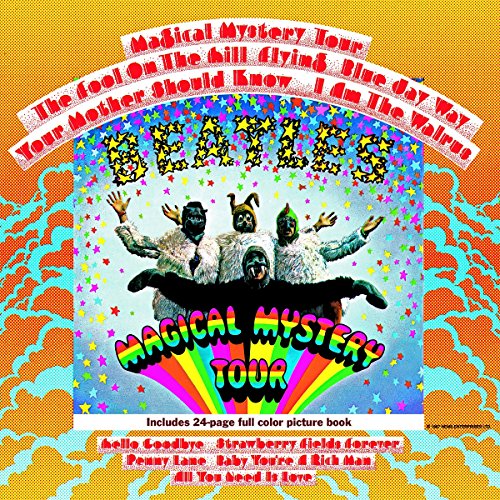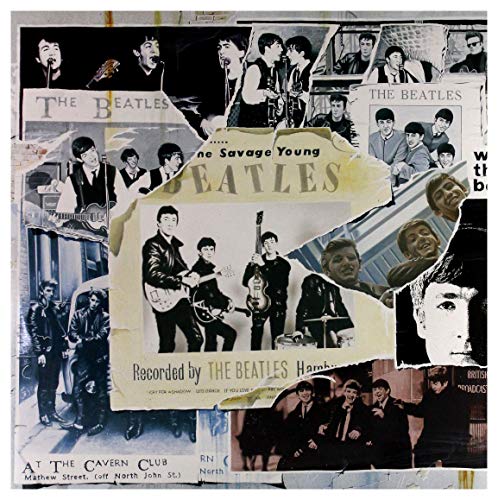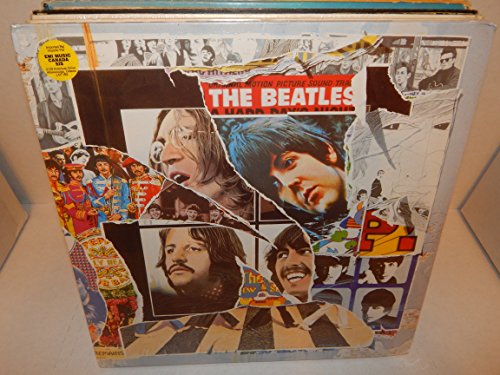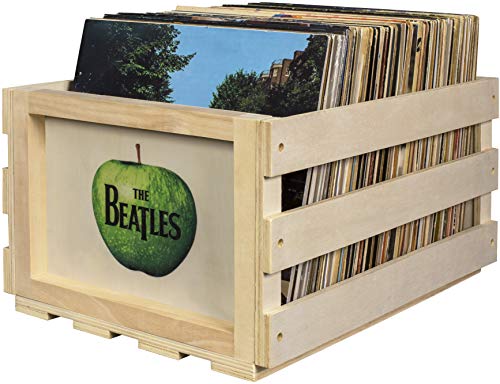THE BEATLES
🎧 Beats and Deets!
Rock on and see what’s goin’ on
🎸🎵
The Beatles, formed in Liverpool in 1960, are one of the most iconic and influential bands in the history of music. Comprising John Lennon, Paul McCartney, George Harrison, and Ringo Starr, the group revolutionized popular music with their innovative songwriting, harmonies, and cultural impact. Emerging from the British rock and roll scene, The Beatles quickly became global superstars, shaping the sound and spirit of the 1960s. Often regarded as the "Fifth Beatle," their producer George Martin played a crucial role in their success, contributing to their distinctive sound with his exceptional production skills and musical arrangements.
The Beatles' journey to stardom began with their early albums, "Please Please Me" (1963) and "With the Beatles" (1963), which showcased their ability to blend catchy melodies with tight harmonies. Songs like "I Want to Hold Your Hand" and "She Loves You" captured the exuberance of youth and became anthems for a generation. Their infectious energy and charisma, coupled with their groundbreaking use of studio technology, set them apart from their contemporaries.
In 1965, The Beatles released "Rubber Soul," a pivotal album that marked a significant shift in their musical direction. With songs like "Norwegian Wood" and "In My Life," they explored more complex lyrics and diverse musical styles, including folk and Indian music. This period of experimentation continued with "Revolver" (1966), which featured innovative tracks such as "Eleanor Rigby" and "Tomorrow Never Knows," showcasing their willingness to push the boundaries of popular music.
The Beatles' landmark album, "Sgt. Pepper's Lonely Hearts Club Band" (1967), is often regarded as one of the greatest albums of all time. Its eclectic mix of genres, groundbreaking production techniques, and concept album format revolutionized the music industry. Tracks like "Lucy in the Sky with Diamonds" and "A Day in the Life" demonstrated their creative genius and cemented their legacy as musical pioneers.
As The Beatles continued to evolve, their music reflected the changing cultural landscape. The "White Album" (1968) featured a diverse array of styles, from the hard rock of "Helter Skelter" to the gentle acoustic ballad "Blackbird." This double album showcased their individual talents and highlighted their ability to experiment with different genres and themes.
In 1969, The Beatles released "Abbey Road," an album that is often praised for its polished production and cohesive sound. The iconic medley on the album's second side, including "Golden Slumbers" and "The End," is a testament to their collaborative spirit and musical brilliance. "Abbey Road" features some of their most enduring songs, such as "Come Together" and "Something," written by George Harrison, which became one of the band's most celebrated ballads.
Despite their breakup in 1970, The Beatles' influence on music and culture remains profound. Their innovative approach to songwriting, recording techniques, and album production set new standards in the industry. Their music continues to inspire and resonate with new generations of listeners, ensuring their legacy endures.
John Lennon, after leaving The Beatles, embarked on a successful solo career, producing timeless songs like "Imagine" and "Instant Karma!" He became a vocal peace activist, famously holding "bed-ins" with his wife Yoko Ono to promote world peace. Lennon's life was tragically cut short when he was assassinated in 1980.
Paul McCartney also found immense success as a solo artist and with his band Wings, creating hits such as "Band on the Run" and "Live and Let Die." McCartney's versatility and talent have kept him in the spotlight for decades, making him one of the most successful composers and performers in music history.
George Harrison pursued a solo career characterized by his introspective and spiritually themed music, with his album "All Things Must Pass" and the hit single "My Sweet Lord" receiving critical acclaim. Harrison also became involved in film production and was a member of the Traveling Wilburys, a supergroup including Bob Dylan and Tom Petty. Harrison passed away from lung cancer in 2001, leaving behind a legacy of profound musical contributions.
Ringo Starr continued to perform and record music, achieving success with hits like "Photograph" and "It Don't Come Easy." He also acted in various films and became a prominent advocate for peace and love, often touring with his All-Starr Band. Starr's contributions to music have earned him recognition and admiration as a beloved figure in the rock world.
The Beatles' impact extends beyond their music. They were at the forefront of the countercultural movement of the 1960s, influencing fashion, film, and social attitudes. Their groundbreaking use of studio technology and willingness to experiment with different musical styles paved the way for countless artists and genres. As cultural icons, The Beatles' contributions to music and society are unparalleled, solidifying their place as one of the greatest bands of all time.
FUN FACTS
John Lennon and Paul McCartney first met on July 6, 1957, at the St. Peter's Church Hall in Woolton, Liverpool. John was performing with his skiffle band, The Quarrymen, who were scheduled to go on stage at 3:30 PM. This meeting marked the beginning of one of the most famous songwriting partnerships in music history.
①
The Beginning
Ringo Starr had a unique way of holding his drumsticks. He used a traditional grip, which is more common in jazz than in rock music. This grip contributed to his distinctive drumming style, which became a key part of The Beatles' sound.
②
Unique Drumsticks
George Harrison was deeply influenced by Indian music and culture. His interest began in 1965, and he even traveled to India to study the sitar under the renowned musician Ravi Shankar. This influence is evident in songs like "Norwegian Wood (This Bird Has Flown)" and "Within You Without You."
③
Indian Influence
In the song "Strawberry Fields Forever," if you play the ending backward, some people claim to hear John Lennon saying, “I buried Paul.” However, Lennon later clarified that he was actually saying, “Cranberry sauce,” debunking one of the many “Paul is dead” conspiracy theories.
④
Hidden Message
The Beatles' final public performance was an impromptu concert held on the rooftop of their Apple Corps headquarters at 3 Savile Row, London, on January 30, 1969. This surprise event was part of their "Let It Be" film project and has since become one of the most iconic moments in rock history. The police eventually shut down the concert due to noise complaints from nearby businesses.
⑤
The Rooftop Concert

VINYL STORE




































